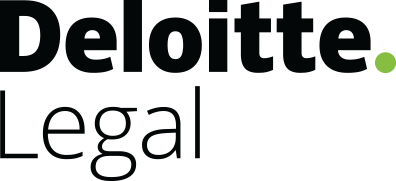Partnerblog

Proxy Decrees adopted during COVID-19 crisis: practical points of attention for the in-house lawyer
The ongoing COVID-19 crisis has affected all aspects of our daily lives. For in-house lawyers, it is important to keep an overview during these turbulent times. In any case, the regulator does not make things any easier for in-house lawyers with the multitude of regulatory initiatives in response to this crisis. The various federal initiatives are discussed below. On 30 March 2020, the two laws of 27 March 2020, empowering the federal executive power to take measures to combat the spread of the coronavirus (hereafter: “Special Proxy Law I” and “Special Proxy Law II”, collectively the “Special Proxy Laws”), were published in the Belgian Official Journal. These Special Proxy Laws gave the federal executive power the power to amend existing laws in certain matters and under certain conditions by royal decree until 30 June 2020, in order to respond adequately and in a timely manner to the various challenges brought by the COVID-19 pandemic. This article reflects on the practical points of attention in this respect, and explains the impact of the proxy decrees on the daily practice of in-house lawyers.

The EU Copyright Directive: the three most controversial provisions
In April 2019, after years of debate and a rather controversial EU legislative process, the Directive (EU) 2019/790 on copyright and related rights in the Digital Single Market (hereafter referred to as the Copyright Directive) was finally adopted. The purpose of this directive was to adapt copyright protection to the digital age in order to create an internal market for digital content and services. Three specific targets were set: (1) to adapt exceptions to reflect the digital and cross-border environment (2) to ensure wider access to content, and (3) to achieve a well-functioning marketplace for copyright.

Can dismissals be justified based on Covid-19?
Can an employer dismiss an employee if the employee has tested positive for Covid-19 and refuses to wear a mask at work or if the employer has experienced a significant drop in revenue due to the crisis?

DUALITY OF FUNCTIONS IN THE INSURANCE SECTOR: GAME OVER?
In this article we have a look at the consequences of a recent communication of the National Bank of Belgium relating tot the duality of functions for corporate mandate holders. With duality of functions we mean the situation in which a person combines the status of employee and independent.

Co-ownership: Majorities and (un)certainties in the event of complete demolition and reconstruction
Plot demolition and reconstruction are far reaching infringements of property rights. It is not self-evident that they can be forced on (co-)owners without their consent. Yet this is the path that the legislator followed in 2018, when the possibility of a four-fifths majority decision was introduced in the general assembly (‘algemene vergadering’) to proceed with the demolition or reconstruction of a plot. However, the Constitutional Court pulled the brakes with a 20 February 2020 ruling, legislating that infringements of property rights must be proportional and necessary in light of the objective pursued. Additional safeguards were therefore introduced by the law of 31 July 2020 to protect that right.

Do's and don'ts in the event of a crisis situation within a company
Companies shouldn't ask themselves if they will ever be faced with a crisis but rather when this will be the case. Modern means of communication present a vast number of opportunities but also entail a wide variety of risks. Managing these risks requires special attention. Without arguing for a moun-tain of paperwork and red tape, we believe it's important for each company to have at least the ap-propriate internal procedures and mechanisms to manage the risks it faces.

Time registration obligation: what if you do not have one (yet)?
The Court of Justice of the European Union (CJEU) ruled in a 14 May 2019 judgment that Member States should provide for mandatory time recording in their legislation. Although Belgium does not have such an obligation so far, the Court’s judgment is not without consequences. This is already evident from a 22 May 2020 judgment by the Labour Court of Brussels, according to which, an employer without a time registration system can no longer assume a purely passive role when an employee claims overtime arrears (without sufficient proof due to a lack of time registration data). The employer will itself have to provide the necessary evidence to dismiss the claim or will risk an order to pay the claimed amount.

Revival of enforcement against vertical relationships may call for a rethink of distribution practices
A €40 million fine was imposed on a clothing company for a new type of competition law infringement as well as behaviour long recognized to constitute a hardcore infringement. The European Commission's Guess decision reflects the current renewed interest in taking enforcement action against vertical agreements and in adapting the competition rules to new business practices.

Freedom to compete for former directors – unless there is an express contractual commitment
The Belgian Supreme Court recently made it clear that former directors, after the end of their mandate, can in principle perform competing activities.

Brexit: The monster that cannot be tamed
Brexit has so far been a long story of postponements and cancellations, for both negotiators as well as companies. However, it now seems inevitable that a conclusive outcome will finally arrive.

How to explain the legal aspects of cybersecurity to the Board of Directors?
Forget the clichés – cybersecurity is not just an IT issue, it is a company-wide issue. From the chair(wo)man of the Board of Directors to the newest intern, every person in an organisation can be both a cybersecurity threat and a cybersecurity asset.

Interim measures remain fashionable
This blog post discusses three recent decisions on interim measures, the recent publications of the BCA and the postponed entry into force of the abuse of economic dependency, allowing you to catch up with key developments in Belgian competition law

